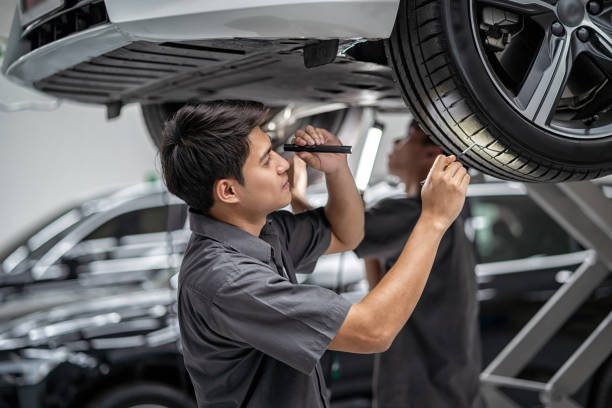As winter rolls around, it’s crucial to ensure that your vehicle is well-prepared to handle the cold weather challenges. Snow, ice, slush, and freezing temperatures can test your car’s mechanical limits, and a lack of winter preparation can lead to unsafe driving conditions or even a breakdown. Here are some tips on winter car care that will help you face the season’s trials confidently and safely.
The first step in winterizing your vehicle is to check the battery. Cold weather can quickly drain a car battery’s power. If your battery is more than a few years old, consider having it tested or replaced. Also, clean off any corrosion around the battery posts and connections to ensure the most efficient power transfer.
Next, check your car’s tires. Winter driving requires good traction, which means you need tires with sufficient tread depth. If you live in a region with heavy snowfall, consider installing winter or snow tires, which are specifically designed to perform better in snowy or icy conditions. Don’t forget to monitor tire pressure regularly as it can decrease in cold temperatures.
Your car’s cooling system should also be winter-ready. Ensure the antifreeze mixture is correct, typically a 50:50 ratio of coolant to water. This prevents freezing and boiling over. Some regions with harsher winter conditions might need a higher ratio of coolant.
Visibility is crucial when navigating winter weather. Check your car’s lights to ensure they’re all working correctly. Replace any burnt-out bulbs and clean the exterior of the lights for optimum illumination. Also, inspect your windshield wipers. If they’re cracked or worn, replace them. Keep the windshield washer reservoir filled with a freeze-resistant washing fluid.
Don’t overlook your car’s heating and defrosting systems. In addition to ensuring comfort during cold drives, these systems are crucial for defrosting windows and maintaining visibility. If there are issues, have your mechanic look at it before winter hits in full force.
The engine oil should also be checked and changed if necessary. In colder weather, thinner oil is better as it flows more easily at low temperatures. Check your vehicle’s manual for the manufacturer’s recommendations on winter oil viscosity.
Lastly, prepare an emergency kit specifically for winter. This should include items such as a snow shovel, ice scraper, jumper cables, flashlight, flares, blankets, first aid kit, bottled water, non-perishable snacks, and any necessary medications. In the event of a breakdown or getting stuck in snow, these items can prove invaluable.
While these tips are applicable to most vehicles, it’s always best to refer to your vehicle’s owner’s manual for specific winter maintenance recommendations. By taking these steps, you will not only ensure your vehicle runs efficiently throughout the winter but also enhance your safety on the road. Remember, the key to tackling winter’s challenges lies in preparedness and prevention. Your car is an investment, and the time and money spent on winterizing it are much less than the cost and inconvenience of mid-winter repairs or accidents.…


